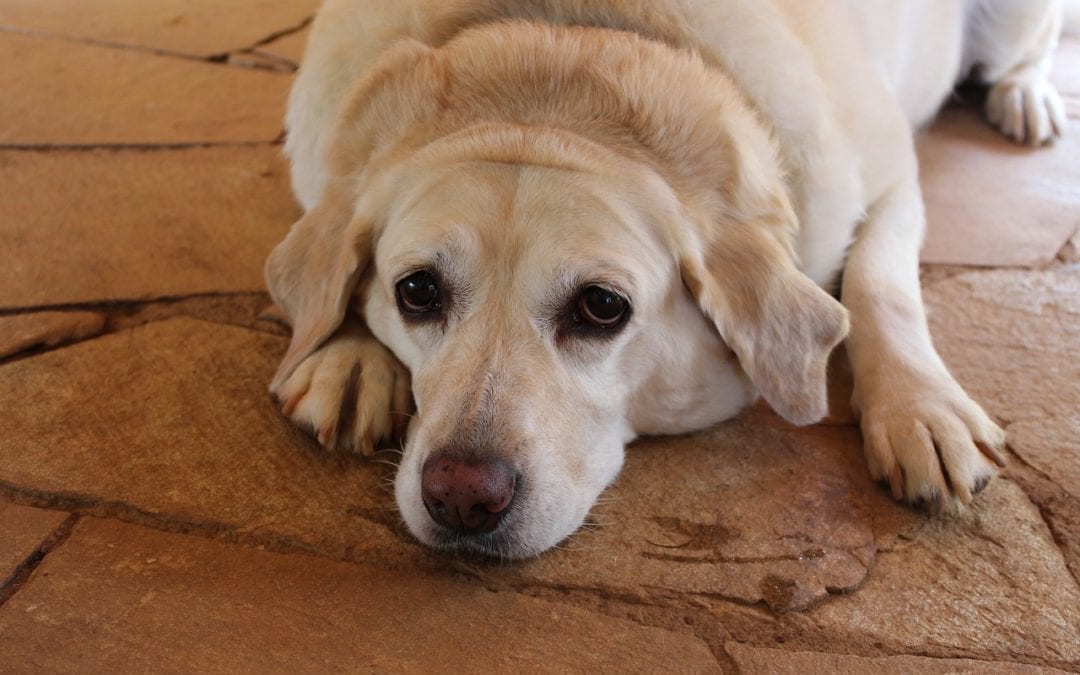Some pet problems are obviously urgent: a scratch in the eye, a toxin ingestion, a traumatic event. No pet emergency is quite as serious, though, as bloat in dogs.
If you have dogs, especially an at-risk breed such as a Great Dane, German Shepherd, or an Irish Setter, you have likely at least heard the term. How much do you really know about bloat though?
Bloat in Dogs
Bloat is the layman’s term for a condition called gastric dilatation volvulus (GDV). This condition occurs when a dog’s stomach fills with air, inflating like a balloon. Most often, when people refer to bloat, however, they are taking this condition one step further.
After the stomach fills with air, the stomach can sometimes twist on itself, trapping the contents of the stomach and cutting off its blood supply. Sometimes the spleen also becomes entangled in this mess due to its close connection to the stomach.
Pets experiencing a GDV episode initially experience discomfort and trouble breathing. Eventually decreased blood supply to the organs can cause serious complications.
Know Thy Enemy
The most important part in successfully treating bloat in dogs is recognizing the problem early and taking action swiftly.
While deeper-chested breeds are at higher risk as they have more room to accommodate twisting, any breed can experience bloat and it is important that all dog owners be able to recognize the signs that their pet needs help. When a GDV occurs, several characteristic symptoms are often seen, including:
Restlessness/acting uncomfortableA distended abdomenRetching/vomiting (usually unproductive)Painful abdomenRapid, shallow breathing
Bloat is always an emergency. If you think that your dog is showing symptoms, don’t wait. If your instincts are correct, prompt treatment is essential. A GDV can lead to death within just a few hours. Call us right away if you are concerned, it is always better safe than sorry when it comes to this diagnosis.
Beating Bloat
Gastric dilatation volvulus can happen despite our best efforts. We are still learning about why this condition may occur, and there is a lot we still don’t understand. There do seem to be certain factors that predispose pets to bloating, however. These include:
Having a deep tall chest (Weimaraners, Basset Hounds, Setters, Great Danes, Shepherds, etc.)Eating very quicklyOnly eating once dailyEating from a raised dishExercising heavily immediately after eatingHaving a more nervous temperamentStress
Some pet owners may choose to have a surgery called a gastropexy performed if they have a higher risk pet. This is a preventive measure and can be done at the same time as spay or neuter. During this procedure, the stomach is tacked in place. Dogs that have had a gastropexy can still bloat, or fill with air, but are unlikely to experience the life-threatening twisting of the stomach.
Knowing how to recognize bloat in your dog can help pet owners to act quickly, resulting in the best outcome for your pet. The experienced staff at Union Lake Veterinary Hospital is always here to help you and your pet. While we hope you never have to meet bloat face to face, we are happy to be able to be there for you and your animals, no matter your need.

